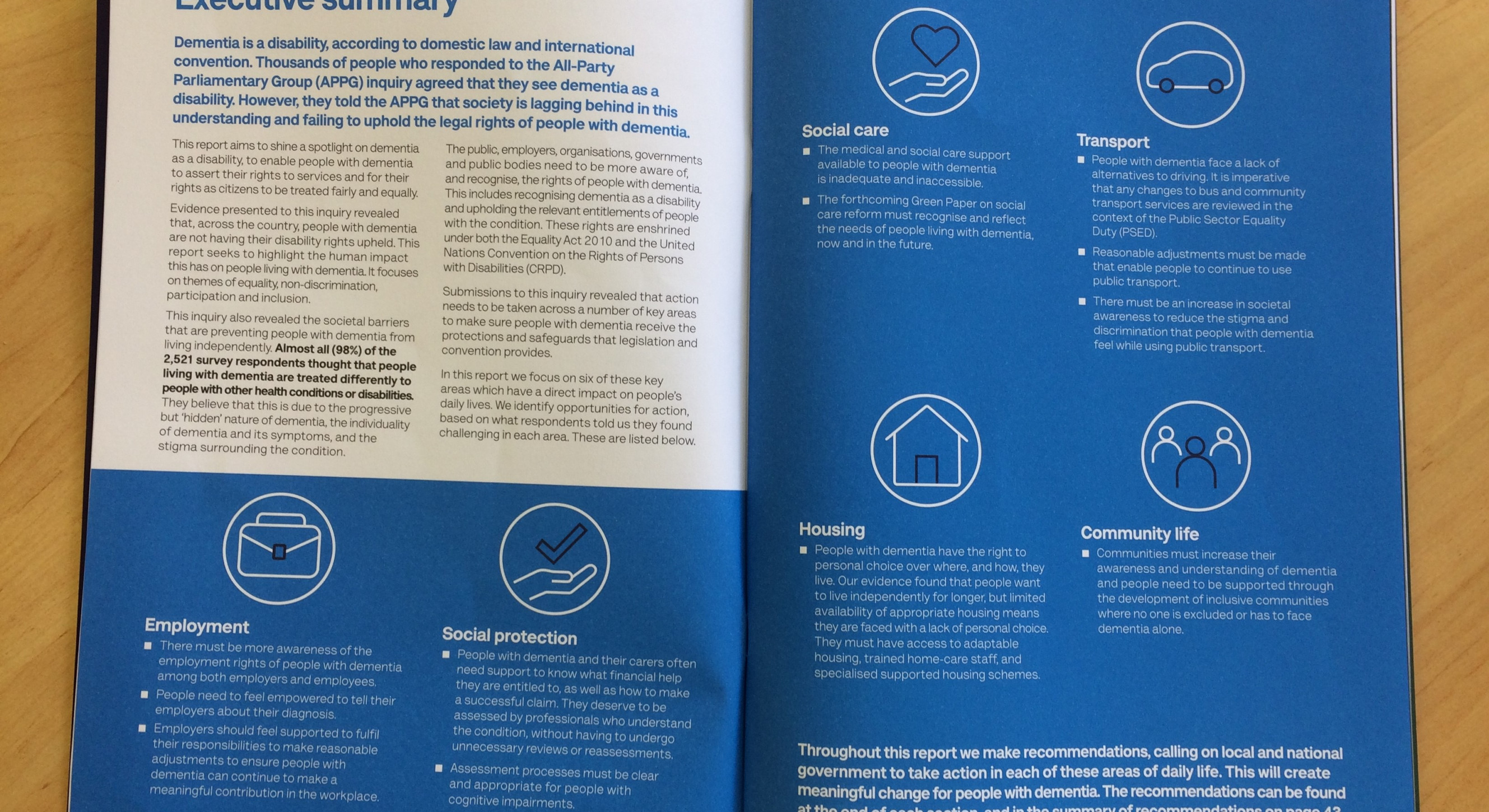We welcome the inquiry’s social model of disability approach to dementia and acknowledge that the findings are consistent for the most part with our understanding of the issues faced by people with dementia and their families.
However, although the report recognises the impact of poverty, employment, housing, social care and community inclusion, it seriously fails to do justice to the additional barriers faced by people from minority ethnic and refugee groups including the Irish. Indeed, a word search using terms like ethnic minority, minority ethnic, refugee, BAME, BAMER, or BME failed to find a single mention of any of these characteristics. While people from minority ethnic groups face the same barriers as the majority community, there is no acknowledgement of the intersectionality which adds to the disadvantage they experience. Although the Equality Act 2010 and the Public Sector Equality Duty feature, there is no mention of most of the nine protected characteristics (race, religion, LGTBI etc) covered by the act.
Clearly the need for non–discrimination on the grounds of dementia is essential but people from BAMER groups face additional challenges which must be addressed proactively. For example, in relation to employment, dementia is more likely to occur earlier in some BAMER groups, while people are still in employment. Similarly, BAMER carers are more likely to be providing informal care at an earlier age than the majority community. BAMER people with dementia and carers have a range of difficulties knowing about and accessing benefits to which they are entitled and with limited understanding of dementia are less likely to be aware of their rights.
Reviews and assessments are problematic for all but are more difficult where language, faith and culture are misunderstood by assessors. Language is an additional barrier for some BAMER groups since people with dementia often lose the ability to communicate in English, their second language, when dementia strikes. However the widespread discourse of “scroungers and benefits cheats” prevents people accessing the help which might improve quality of life and enable people to cope at home for as long as possible.
The lack of adequate and accessible social care is a problem for all, but there is a widespread absence of culturally sensitive social care for people from different minority ethnic groups and religions. This becomes even more relevant when memory fails and there is little understanding of the person’s experience or life story. BAMER families already provide high levels of informal care with subsequent damage to their own health income and wellbeing.
Although the support given to these families by the BAMER third sector is often life–saving, cuts in services and the additional disadvantage of having to compete with big charities in a highly competitive contract environment means many are closing. While the value of support given by Alzheimer’s Society is invaluable, it does not and cannot offer the accessible and acceptable support which BAMER grassroots organisations provide.
While this Hidden No More: Dementia and Disability report is highly relevant for people with dementia from BAMER communities and their carers, the exclusion of their additional needs is totally unacceptable. This is a serious omission and how this will be addressed must be a priority.
Reports such as these can play an important role in influencing policy, planning and resourcing of service provision. Consulting organisations with expertise in how to better include intersectional people with disabilities is so important for helping to ensure people living with dementia from intersectional communities (BAMER as well as other equality groups such as LGBTI) are included and not erased from the picture.
From our experience, many BAMER organisations are keen to share expertise and contribute to reports that can help highlight more complex intersectional needs of people. Indeed Irish in Britain’s Cuimhne team did give input to this report and have given feedback also. At the same time, many of these groups are very time stretched, doing a huge amount on the frontline already with staff and volunteers often at capacity and do not all have the time and resources to complete online surveys or attend focus groups; outreach and offering designated resources to groups to enable their participation in consultations is so important.
Including more voices, stories and experiences of people from intersectional equality groups in this report would help highlight the often more complex needs and social inequalities experienced by intersectional people living with dementia, their families and carers.
At Irish in Britain we advocate for these voices to be considered by policy makers and service providers and hidden no more too.
Find out more about Irish in Britain’s Cuimhne project here, or email champions@irishinbritain.org
